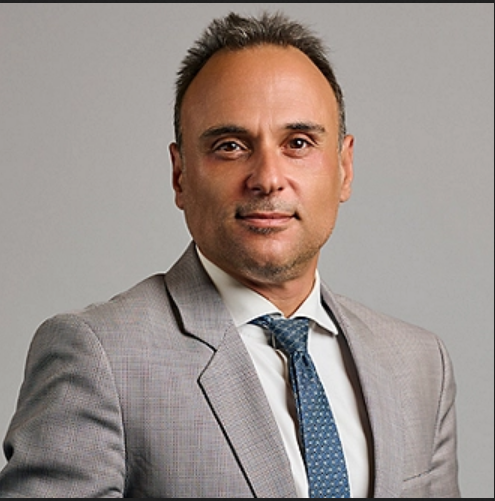Wednesday 02/04/2025 – Day 1
Short bio: Prof. Dr. Dimitris Kyritsis (Kiritsis) is Professor Emeritus of ICT for Sustainable Manufacturing at EPFL, Lausanne, Switzerland, Academic Director of the EPFL Extension School program on Sustainable Resilient Value Chains, Senior Advisor at the University of Oslo, Norway, and Senior Advisor at the Swiss Smart Factory, Biel/Bienne, Switzerland. His research interests are Closed Loop Lifecycle Management, Industrial Ontologies, Knowledge Graphs and Cognitive Digital Twins. Dimitris is involved in EU projects in the areas of Digital Manufacturing, Zero Defect Manufacturing, Circular Manufacturing, etc. He has more than 250 publications. From 2013 to 2019 Dimitris was the Chair of IFIP WG5.7-Advances in Production Management Systems. He is co-founder of the Industrial Ontologies Foundry and of the Knowledge Graph Alliance. Dimitris was Member of the WEF Global Future Council on Advanced Manufacturing and Value Chains from 2019 to 2022. Since 2022 he is Editor-in-Chief of the Open Access journal Frontiers in Manufacturing Technology.
Title: Information Modelling Framework for Addressing Information Fragmentation in Industrial Systems Design
Abstract: The Information Modelling Framework (IMF) is a novel approach designed to address the challenges of the digital and green transition in industrial sectors. It aims to transform the design, construction, and operation of industrial assets to meet carbon-neutrality goals and adapt to new business models. The IMF methodology provides user-friendly information modelling tools for engineers, enabling effective use of AI and Digital Twin technologies in industrial applications. Key features of IMF include: transformation of system models into ontologies capturing entity meanings across design phases, encapsulation of model-based systems engineering principles into ontology-based classification systems, and addressing information fragmentation issues in various industries. The IMF approach facilitates reliable data integration, improves decision-making processes, and supports the digitalization of industrial processes, ultimately contributing to the twin digital and green transition challenges faced by the industrial sector.
Thursday 03/04/2025 – Day 2
Short bio: Dr. Angelos Markopoulos is a Professor at the School of Mechanical Engineering of the National Technical University of Athens (NTUA). He is member of the Editorial Board of several Scientific Journals, committees of International Conferences and he is the PI of EU-funded projects. His research includes topics such as precision machining with particular interest in high-speed machining, grinding, micromachining, non-conventional machining and additive manufacturing. In addition, he is an expert in modelling and simulation, including finite element methods and molecular dynamics. In addition, he is the author of more than 200 papers in journals, conferences and book chapters in the aforementioned areas and is the author or editor of 3 books published by Springer and CRC Press. Finally, he was included in the top 2% of scientists who are the most influential in their field of expertise, according to a survey by Elsevier and Stanford.
Title: Additive Manufacturing for Bioengineering Innovation: State-of-the-Art Insights, Emerging Perspectives, and Roadmap Ahead
Abstract: Additive manufacturing (AM) continues to revolutionize bioengineering innovation by facilitating the development of personalized devices and implants. State-of-the-art processes, such as Laser Powder Bed Fusion (L-PBF) for metallic implants and vat polymerization for polymeric scaffolds, enable high-precision fabrication, biocompatibility, and structural complexity. Additionally, generative AI-driven design strategies further enhance device customization and performance, allowing designs to accommodate patient-specific anatomical variations. Moreover, the integration of machine learning algorithms with imaging and computational platforms accelerates product development cycles and reduces production costs. By fostering interdisciplinary collaboration among engineers, clinicians, and data scientists, AM technologies drive continuous improvements in material properties, surface finishes and mechanical performance. Beyond L-PBF and vat polymerization, other 3D printing techniques, such as Fused Filament Fabrication (FFF), binder jetting, and electron beam melting, have emerged to address diverse functional needs, expanding the range of available biocompatible materials and processes. This vision highlights AM’s potential to reshape biomedical innovation, improve treatment outcomes, and enable more efficient, personalized healthcare solutions for diverse patient populations worldwide. Thus, a comprehensive roadmap emphasizing scalability, standardization, and ethical considerations is essential to align these technologies with patient welfare and healthcare system demands.
Friday 04/04/2025 – Day 3
Short bio: Mr. Vidakis is Partner in Deloitte’s Technology and Transformation Department, and he is leading the Cyber Services for Deloitte in Greece. He has more than twenty years of information systems security, auditing and technology experience, with special emphasis on Cyber Security in the industrial industry. Mr. Vidakis leads numerous Cyber engagements assisting industrial organizations understanding the level of risk associated with the current cyber security posture and to take appropriate organizational, procedural and technical measures to eliminate or mitigate possible vulnerabilities, weaknesses or technical flaws. He has also guided several industrial clients in evaluation, designing, implementing and managing cyber programs enchasing their return of investments.
Title: Industrial Cyber Threat Landscape and lessons learnt from the front line
Abstract: The industrial attack surface is larger than ever moving forward to the digital transformation journey. Organizations are struggling to enforce a holistic resilience model to manage cyber risks. Industry’s challenges/cyber initiatives are mainly focus on threat intelligence, situational awareness, enforcement of risk-based approaches, implementation of agile and adaptive security controls and compliance with industry’s regulations.


